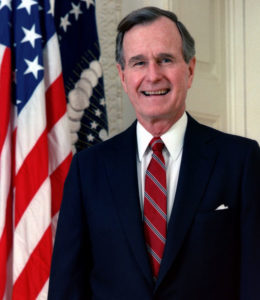 Bush 41 is what the country started calling him once his son became president. Yet George Herbert Walker Bush was not just a number; my own research on him has led me to revise not only my evaluation of his presidency but my perception of him as a man of faith and honor.
Bush 41 is what the country started calling him once his son became president. Yet George Herbert Walker Bush was not just a number; my own research on him has led me to revise not only my evaluation of his presidency but my perception of him as a man of faith and honor.
I voted for him twice, yet I had reservations as to whether he was the best successor to Ronald Reagan. I continue to note his deficiencies as president: his walkback of the promise of no new taxes hurt him badly in his re-election bid; he also seemed to lack the kind of energy needed for that re-election. But I now believe he accomplished more than some people give him credit for: ousting the corrupt Panamanian drug lord Manuel Noriega and gathering a coalition of nations to beat back Saddam Hussein’s power grab in the Middle East are two of his greatest achievements.
Perhaps a review of his earlier life—which is being and will be reviewed all this week—will help highlight his overall accomplishments.
Bush was the youngest Navy pilot in WWII, flying 58 combat missions. On one of those missions, he was shot down and rescued by a passing US submarine. He easily could have died bobbing around in the Pacific Ocean. He was awarded the Distinguished Flying Cross for bravery in action.
After the war, he moved his family out of New England to Texas and proved himself successful in business as director of an oil company and president of an offshore drilling equipment company.
Bush’s first attempt at elected office was as an unsuccessful Texas Senate candidate in 1964, but then he won a seat in the House in 1966; he lost another Senate race in 1970 to Lloyd Bentsen (who later ran against Bush in 1988 as the Democrats’ losing vice presidential candidate).
During the Nixon presidency, he was appointed as Permanent Representative of the US to the UN, then served as chairman of the Republican National Committee (RNC), beginning in 1973. That had to be one of his most difficult assignments, as he attempted to right the GOP ship in the midst of Watergate.
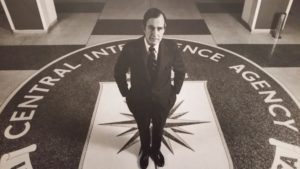 President Ford recognized Bush’s skills and appointed him head of US Liaison Office in Communist China, then he took over as director of the CIA in 1975. That agency now bears his name.
President Ford recognized Bush’s skills and appointed him head of US Liaison Office in Communist China, then he took over as director of the CIA in 1975. That agency now bears his name.
I knew little to nothing of Bush until the 1980 presidential primaries when he ran against Reagan to receive the Republican nomination. Admittedly, I was chagrined when Reagan chose him to be the vice presidential candidate on the ticket. I thought he was too liberal.
Reagan, though, wanted Bush to publicly agree with the strong pro-life position in the Republican platform, which he pledged to do. This struck me at the time as pure politics since Bush had not been strongly pro-life prior to that time. It may have been exactly that. Yet for the rest of his life, even after he left public office, he never backed down on that commitment. I believe it became his conviction over time.
During my sabbatical year, Bush’s Library was one of my research stops. The museum was very well done, and perusing it one day at my leisure helped me to get a better measure of the man.
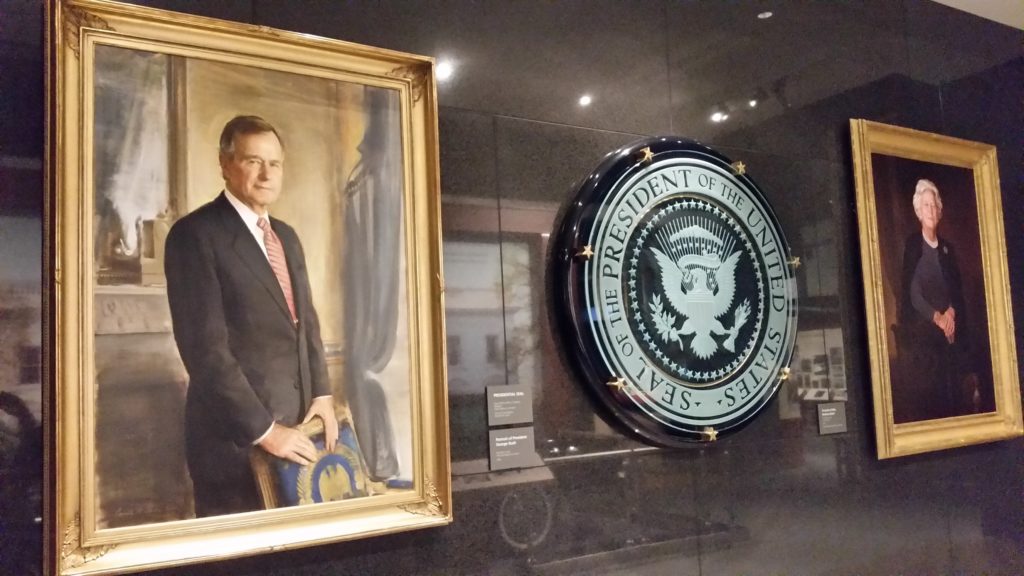
I also took the opportunity to get as close to the Oval Office as I ever will.
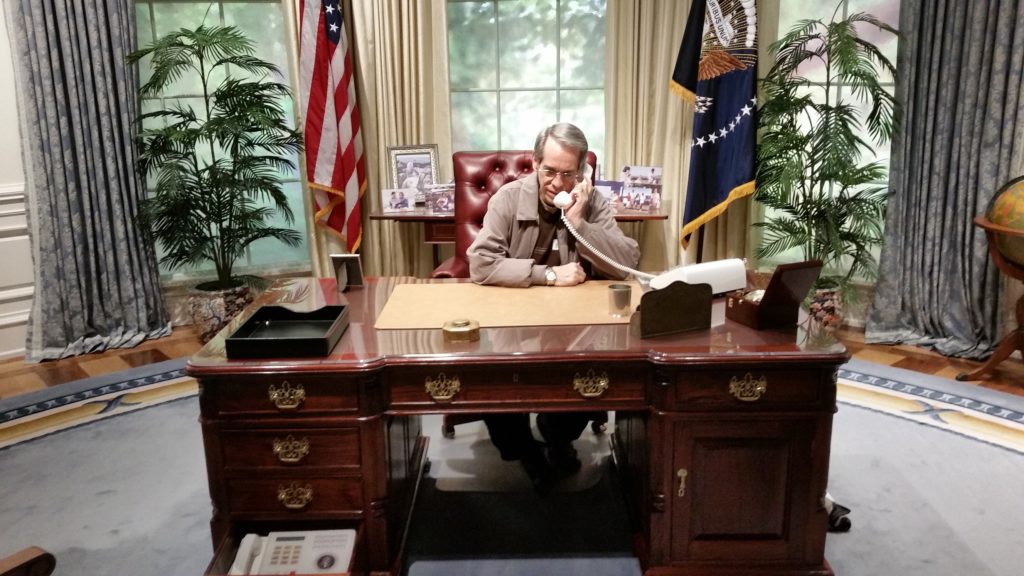
The research I conducted during the sabbatical helped me see also the Christian faith of the man. I didn’t know how close he was to Billy Graham. I was unaware that for many summers prior to his presidency, he had Graham come to the family compound in Maine to speak to the family. Bush wanted his entire family to be instructed by Graham. To his credit, Graham chose not to preach but to conduct those sessions in the Q&A mode, which was much more effective.
It was during one of those visits that George W. Bush took a walk with Graham on the beach and began his spiritual journey to Christian faith.
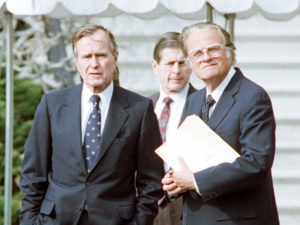 When Bush 41 moved against Saddam Hussein, it was Graham that he wanted by his side—not as a political advisor, but as a spiritual counselor. Graham heeded that summons. The two were close personal friends. It was a revelation to me just how close they were for those many years.
When Bush 41 moved against Saddam Hussein, it was Graham that he wanted by his side—not as a political advisor, but as a spiritual counselor. Graham heeded that summons. The two were close personal friends. It was a revelation to me just how close they were for those many years.
I’m teaching a new course this coming semester that I’m calling “Religion and the Presidents,” and I’m pleased that I’m now going to be able to add one more name to the number of those whose Christian faith was genuine.
When Bush gave his acceptance speech at the Republican Convention in 1988, one of the lines from that speech (authored by Peggy Noonan, but obviously approved by Bush) has stuck with people. He spoke of the numerous non-governmental volunteer organizations throughout the nation that were performing valuable services. He called them “a thousand points of light.”
Bush didn’t believe that government was the answer to all of our problems. He looked instead to all those people, usually guided by their faith, as the better solution. I believe his life demonstrated that belief. One political cartoonist, in the wake of his death, has made the “point” very well.
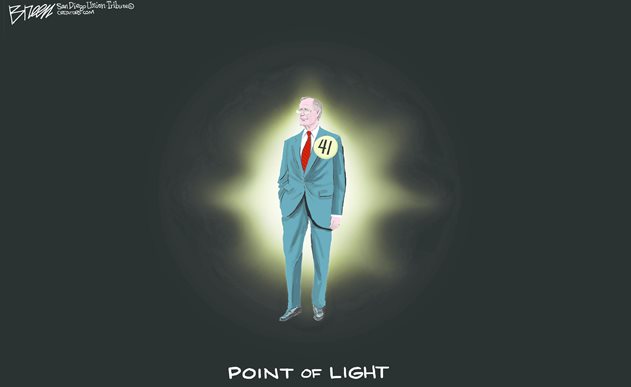
We need more men of faith and honor. We need more like George Herbert Walker Bush.
